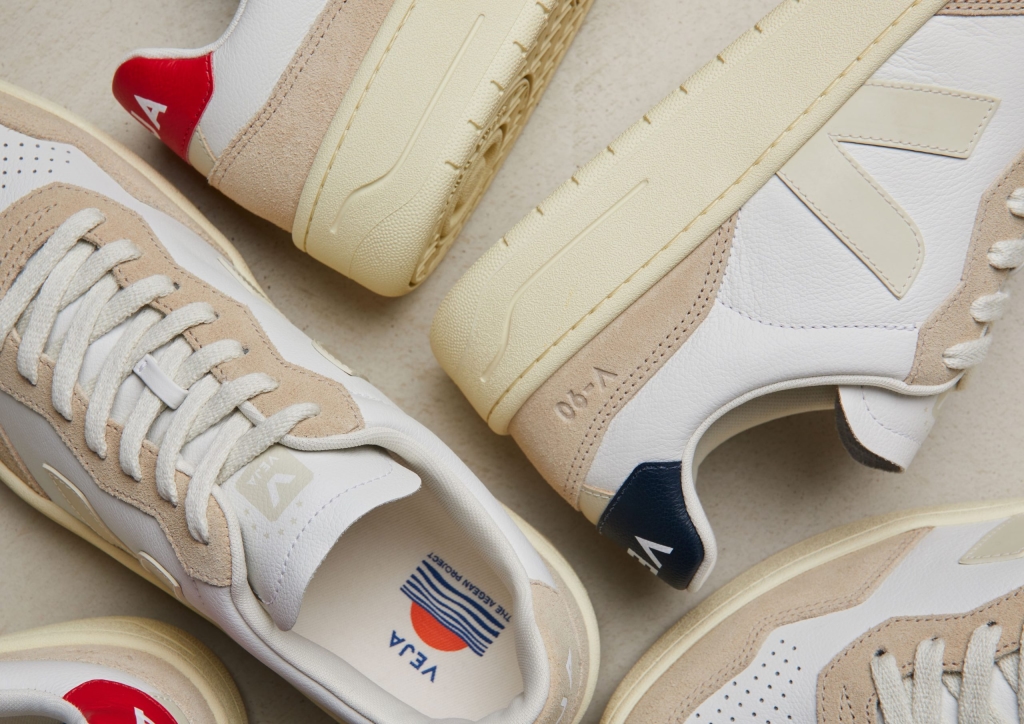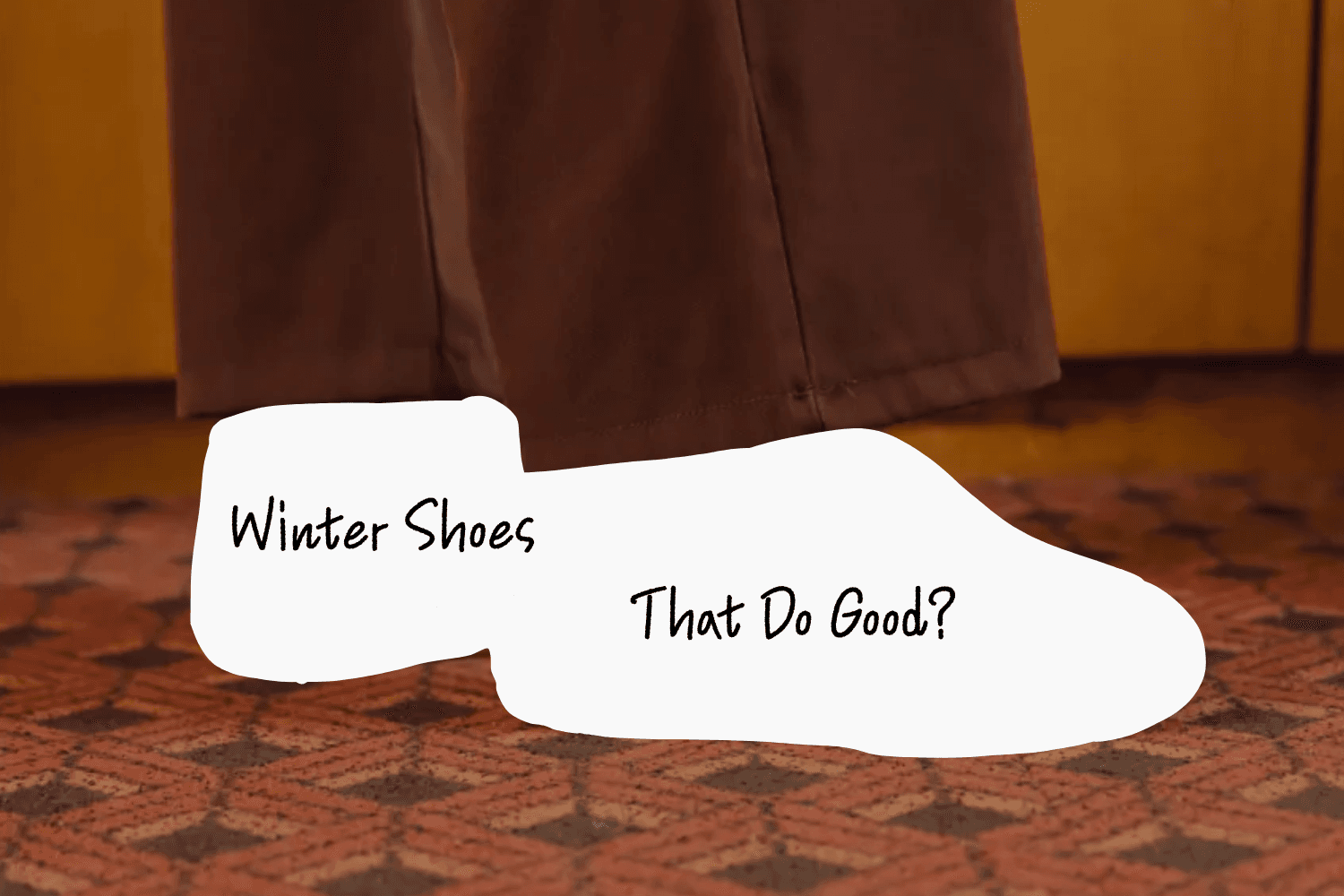Veja, the French-Brazilian footwear brand, has made a name for itself by blending minimalist designs with a commitment to ethical and sustainable practices. With projects ranging from using wild Amazonian rubber to organic cotton, Veja has consistently prioritized environmental and social responsibility. Their latest endeavor, The Aegean Project, reflects this ongoing mission. By bringing production closer to the European market, specifically Portugal, Veja aims to reduce its environmental footprint and strengthen its focus on transparency and worker welfare.
Why European Production Matters
In 2023, Veja began producing sneakers in Portugal under The Aegean Project. This marked a deliberate shift in their supply chain strategy, as most of their footwear production had previously been based in Brazil. By moving part of their manufacturing to Europe, Veja significantly reduced transportation emissions associated with shipping goods across continents.
Portugal was chosen for its well-established expertise in textile and footwear manufacturing. Additionally, producing closer to their primary European market allows Veja to have more direct oversight of the production process, ensuring adherence to their high standards for worker welfare and environmental responsibility.

A Focus on Worker Welfare
Veja’s commitment to fair trade and ethical labor practices is a cornerstone of their brand identity. The Aegean Project reflects this principle by ensuring that factory workers in Portugal operate under fair conditions. Employees in the Portuguese facility work 40-hour weeks, a standard in the region, and receive an average monthly salary of approximately €1,300.
While this figure may not seem extravagant, it is considered fair compensation for the region and industry. Additionally, Veja provides training programs for workers, covering topics such as safety, health, environmental concerns, and social protections.
Sustainable Materials and Localized Production
Veja’s dedication to sustainable materials is well-documented. Their sneakers incorporate organic cotton sourced directly from farmers, wild rubber harvested from the Amazon rainforest, and yarns made from recycled plastic bottles. These materials reflect the brand’s effort to minimize reliance on virgin resources while supporting communities engaged in ethical agriculture and waste management.
The Aegean Project builds on this foundation by pairing sustainable materials with localized production. By manufacturing in Portugal, Veja reduces the carbon emissions associated with transporting raw materials and finished products across long distances. This regional focus also helps ensure supply chain transparency and allows Veja to monitor the environmental impact of their operations more closely.

Balancing Sustainability and Functionality
The Aegean Project shows how Veja integrates sustainability into the functionality and design of their sneakers. While the materials and production processes prioritize environmental impact, the sneakers themselves remain durable and stylish. This balance is key to Veja’s success, as it allows them to appeal to consumers who value both quality and sustainability.
In doing so, Veja challenges the conventional wisdom that sustainable products must come with compromises in performance or aesthetics. Instead, The Aegean Project showcases how thoughtful design and responsible manufacturing can coexist.
The Bigger Picture
The Aegean Project is not just about producing sneakers in Portugal; it is part of a broader vision for a more sustainable fashion industry. By shifting production closer to their market, reducing transportation emissions, and maintaining high labor standards, Veja demonstrates how brands can rethink traditional supply chains to address modern challenges.
This initiative also underscores the importance of community partnerships. By working with local suppliers and manufacturers, Veja strengthens regional economies while ensuring that their production processes align with their values.

Consumer Responsibility
As The Aegean Project highlights, sustainability is not just the responsibility of brands—it also requires action from consumers. By choosing products that prioritize ethical practices and environmental stewardship, consumers can support companies like Veja and help drive broader industry change.
The Aegean Project serves as a reminder that every purchase has an impact. Choosing Veja’s sneakers, for example, supports fair labor practices, reduces plastic waste, and encourages the use of sustainable materials.
The Aegean Project is a meaningful step forward for Veja as they continue to redefine the possibilities of sustainable footwear. By focusing on European production, the project minimizes environmental impact, strengthens supply chain transparency, and ensures fair treatment of workers.
Frequently Asked Questions (FAQ)
What materials does Veja use in The Aegean Project?
Veja incorporates organic cotton, wild Amazonian rubber, and recycled plastic yarns, reinforcing their commitment to ethical sourcing and reducing reliance on virgin resources.
How does The Aegean Project align with Veja’s sustainability goals?
The project minimizes environmental impact by localizing production, using sustainable materials, and reducing carbon emissions from long-distance transportation.









